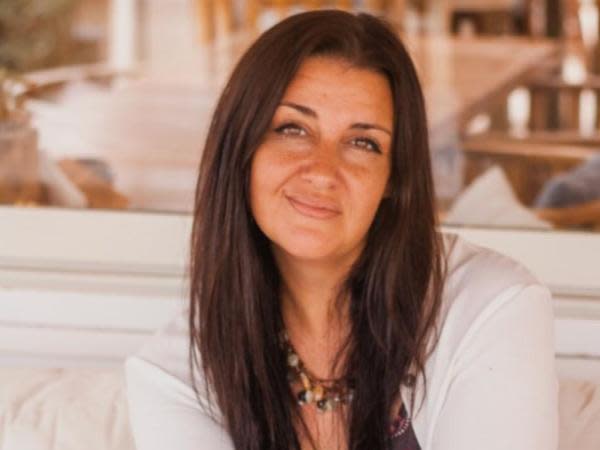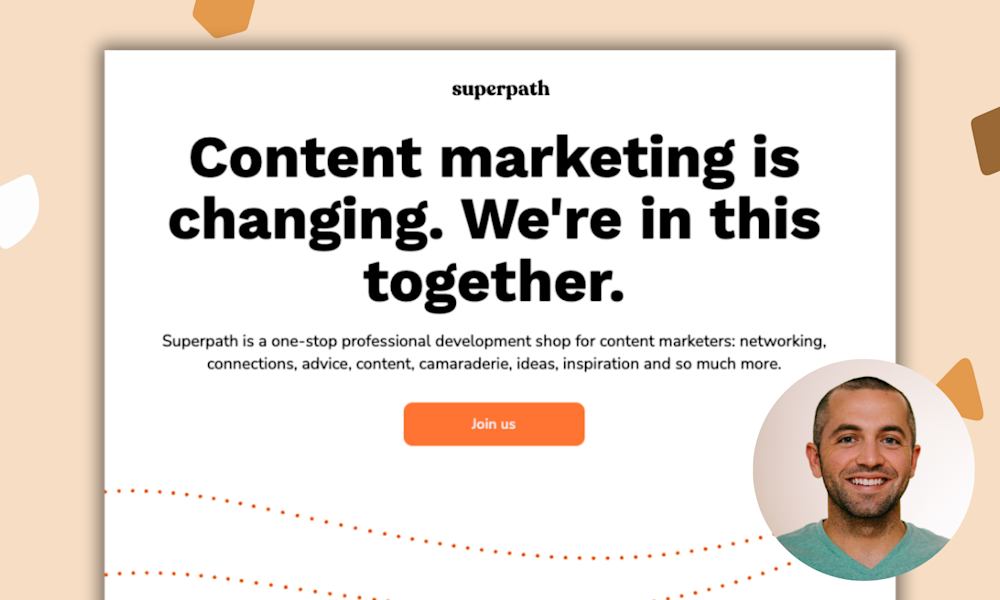A decade into his advertising and marketing career, Adrian Dalsus had a lightbulb moment. What if he could combine his professional marketing experience with his lifelong passion for music?
At the time, Adrian was running his own marketing agency for small businesses. Helping corporate clients implement sales funnels and generate leads was exciting, but something was missing.
Music had always played a significant role in Adrian's life. Before his career in marketing, he had been in a band. The group came close to their big break when they won a festival and had their song played on a popular radio station in Venezuela — but they didn’t know how to harness that momentum.
"We missed many opportunities," Adrian remembers. "We didn’t know anything about networking, writing press releases, branding, getting media coverage, and expanding our music beyond the bubble of family and friends."
Years later, Adrian realized that his marketing experience had given him valuable knowledge that could help musicians promote their work, release music, and grow their fanbase. "How is it that musicians don’t know all these things exist, that we can do campaigns, that we can use our creativity to apply marketing strategies to a music career?"
Proper marketing, Adrian theorized, could help musicians take control of their careers and maximize opportunities instead of waiting in the wings. So Adrian got to work.
Today, Adrian runs his own music marketing business, Despegue Musical. His book, online courses, and digital products teach musicians how to distribute their music and get noticed in this challenging industry.
Along the way, Adrian cultivated a deep understanding of his target audience by conducting market research, listening to follower feedback, and trusting his professional skill set.
Here's how Adrian combined his work experience with his love of music to build an audience, serve them generously, and create products that help them shine.
Find and grow your audience by sharing solutions
Adrian was all too familiar with his musical audience's pain points around marketing and promotion, and his advertising background gave him the skills to help. He just needed to find his people.
Adrian began sharing marketing advice for musicians on social media. He launched a podcast called Querido Músico (Dear Musician), and the artists who found his work couldn't wait to learn more.
"We underestimate the power of social media," Adrian says. "We think that there are so many people on social media that no one will notice us, but when I began the podcast, people reached out and thanked me for doing it. They said they enjoyed it and encouraged me to keep going."
At the urging of his audience, Adrian expanded his online presence to YouTube, where he recommends:
"Research before you press record."
His number one tip for succeeding on YouTube: Look at what's working in your niche and use that to guide your creative process. "You first have to know who your ideal customers are and what content is relevant and entertaining to them," he explains.
"Research all the titles, thumbnails, and popular topics in your niche. You shouldn’t copy directly, but use what’s working as inspiration and replicate that in your own business. If you create great content and give a solution in your video, people will acknowledge that."
Today, YouTube is Adrian’s most successful channel. "The majority of people who buy my courses are connecting with me and discovering me from YouTube. I believe YouTube is the main channel where creators should focus right now.
"I'm focusing on YouTube and Instagram, but YouTube is my priority," he elaborates. "I make creative videos, podcast episode videos, and short videos like reels."
"People say if you like to talk, you should start a podcast. If you like to be on video, you should start a YouTube channel. If you like to write, you should start a blog. I like to do all of these things," Adrian laughs.
Adrian also uses content repurposing — sharing information in multiple formats — to get the most mileage out of his work. He records his podcast episodes in video and audio formats to reach audiences across multiple platforms. This means he can release podcast episodes as videos on YouTube and cut out shorter clips to share on Instagram and Facebook.
A single podcast episode, Adrian explains, can be transformed into multiple blog articles, YouTube videos, reels, tweets, and social media posts.
By consistently giving away valuable advice on his podcast, YouTube channel, and social media accounts, Adrian grew a loyal audience. It was time to take things to the next level and launch his academy, Despegue Musical.
Walk in your customers’ shoes to create relevant products
To design great products for your audience, you have to know what they need. Adrian uses a combination of audience feedback, professional know-how, and his experiences in the music industry to educate his students and provide meaningful solutions.
Early on, Adrian planned to produce evergreen courses with pre-recorded content, which require less administrative work than live programs. But Adrian’s audience was more interested in live courses with a specific start and end date — and a bigger time investment from Adrian — so he found a compromise.
His flagship music marketing course includes pre-recorded modules so students can study independently. There are also weekly live group calls where students can get support and ask questions. This gives participants premium access to Adrian, with the flexibility of a self-paced course.
Adrian also used audience feedback to make mini courses that are more manageable for musicians with packed schedules.
"At first, I created long-term courses that take a lot of time to make and complete. Then I realized that people, especially musicians, might be looking for short-term wins. So now I’m focusing on specialized mini courses," he shares.
The mini courses are self-paced, don't have a live component, and cost less than his premium course. Busy musicians love the bite-sized, action-oriented workshops.
To decide what to cover in his courses, Adrian leans into his marketing background and reflects on his own musical journey. "I do ongoing research and ask my followers what things they want to learn. But I've found that often, people don’t know what they need," Adrian observes.
"Someone might tell me that they want a social media strategy, which could be helpful, but they really need a creative strategy and brand positioning for the music. These things don’t sound as appealing as learning Facebook and Instagram ads, but they are more important for people to develop and be discovered."
Because Adrian's past self is his ideal customer, some ideas come from looking back in time.
"I think about what Adrian of ten years ago would have needed, and I create courses around that."
For example, when Adrian and his bandmates recorded their first song, they saved it on a CD and went straight to the most important radio station in Caracas.
"We thought we could hand that CD over to reception, and someone would discover us and put us on the radio the following week," he says. "I appreciate that we had the courage to take action, but the music industry (and the real world) just doesn't work like that."
Revisiting what he wished he had known about music marketing helps Adrian provide relatable and relevant materials for his students.
"I would have loved to have had a mentor who could advise me on how to promote my music at that time. It would have helped me maximize my creative talent, time, and efforts. That's exactly why I’m committed to helping independent musicians today, so they can make the most of their songs and creativity."
The result? His students are taking their music careers to the next level.
Choose tools that put creators first
With a finely tuned course plan, Adrian needed to find a platform for managing his programs.
Initially, he used WordPress, but there was a steep learning curve. Investing in all the tools needed to run a website was expensive, and he was worried that unexpected glitches and plugin updates would break his site.
In need of a more reliable solution, Adrian tested dozens of online course and website platforms. Podia was his favorite. "It's minimalist, affordable, and very attractive. I like how Podia is growing, and I'm happy to see all the updates in the app. The customer service is excellent."
Often, simple is best when building your online business. "With Podia, you know your site will look beautiful on mobile or desktop. It won’t crash. All the buttons will work."
"I feel like Podia is an ally, like Podia is a part of my team, and I can't say that with other tools."
Adrian also emphasizes the importance of choosing a company that puts creators first.
"Although it sounds cliché, ask what are the values, mission, and vision of the company? What are their future plans? Are they really looking to grow? Or did they develop a product or service that they’re now trying to sell, with no interest in improving it?”
Adrian sells his courses, mini workshops, and product bundles through Podia. He also runs an online community where musicians can network, share their music, and ask questions.
With the right technology on his side, Adrian has more bandwidth to create workshops, courses, and content for aspiring musicians. By listening to his audience and trusting his experience, Adrian's programs are topping the charts.
Three keys to creator success: Niche, research, and consistency
According to Adrian, there are three keys to being a successful creator: loving your niche, doing your research, and creating with discipline and consistency.
Pick a niche you’ll be passionate about long term
While it can be tempting to follow the trends, Adrian encourages creators to pursue niches that energize and inspire them. This involves some self-reflection.
"First, discover yourself. What do you love to do? What things motivate you to get up every day?" Adrian asks. "For me, it was music. Most of the time, it's something that's been in your life for a long time."
Take stock of your hobbies, interests, and passion projects. Your niche should be a topic you won't mind discussing every day for years to come.
Explore existing resources to do market research
Whether designing YouTube thumbnails or building a new mini workshop, Adrian is always doing market research. "Study your niche, read books, take a lot of courses. If you want to sell courses, taking courses is a good way to learn how they work," he says.
There's no need to reinvent the wheel; you’ll gain valuable insights by exploring what works for other creators in your industry.
Discipline and consistency
Finally, Adrian recommends working towards your goals daily, even if you’re doing something small. It adds up over time.
"You have to have a lot of discipline. Some days you won’t want to record a video. Some days you won’t want to finish making your courses. Being a solopreneur, you need to be focused on your goals. Discipline is key."
You might not get results overnight — but three years from now, you’ll be miles ahead of where you started.
Adrian's hitting all the right notes
Equipped with his marketing skill set, a lifelong love of music, and thoughtful market research, Adrian teaches artists how to succeed in a demanding industry. His students at Despegue Musical are thriving, and so is he.
As Adrian puts it, "If you do what you love, you’re not working anymore."
Have an idea for your own online business? Create your free Podia account and start sharing your passions today. 👇



